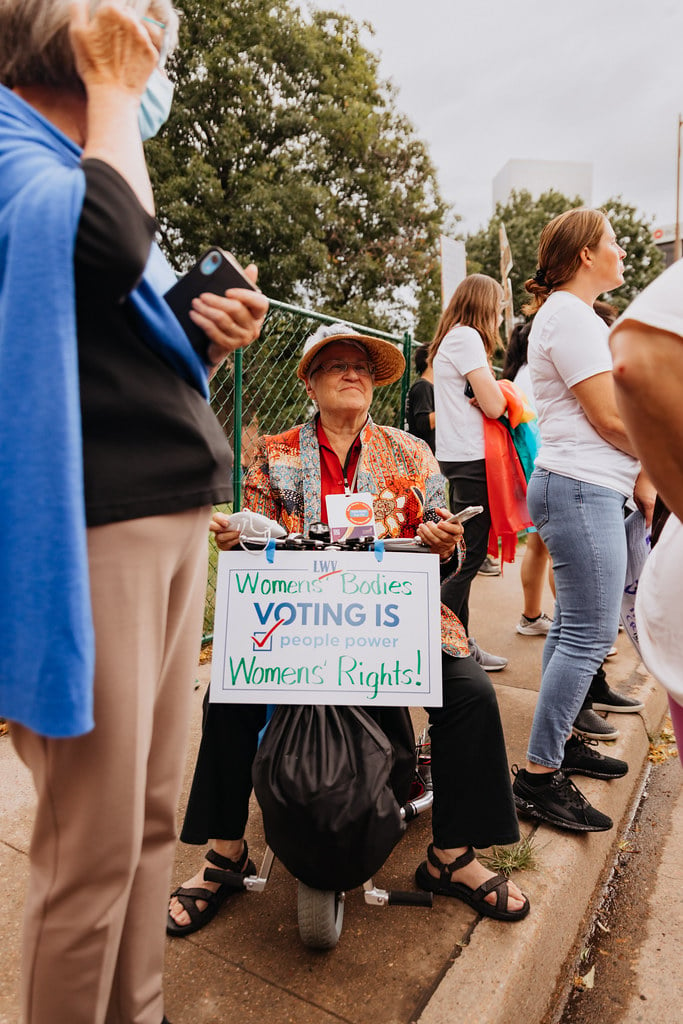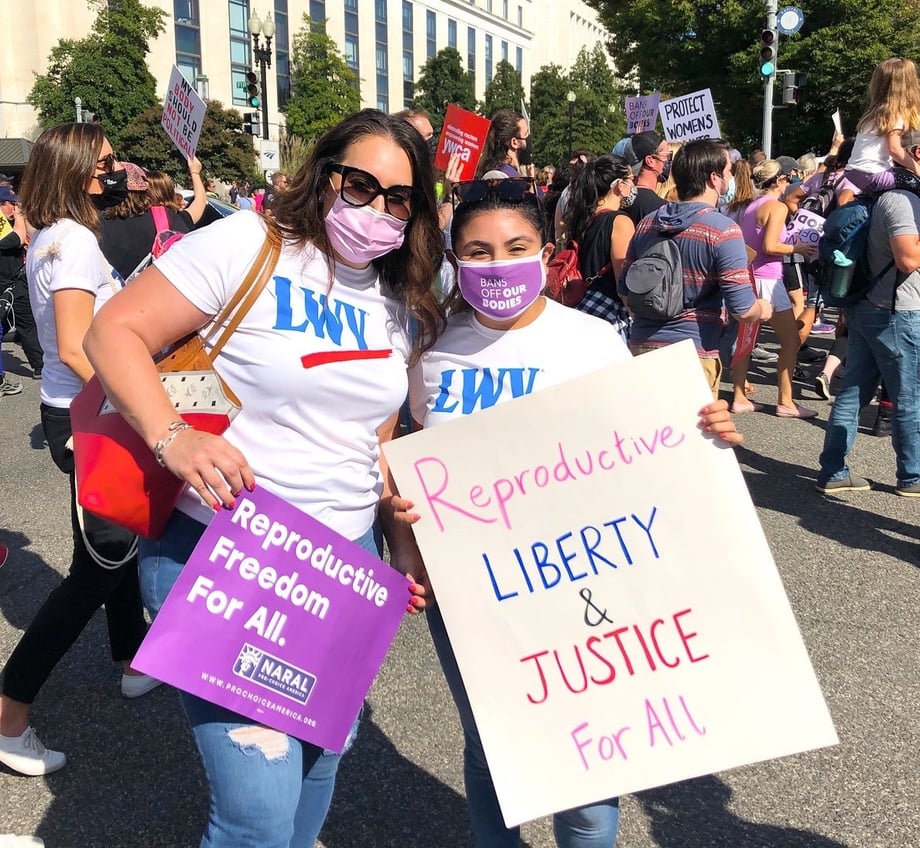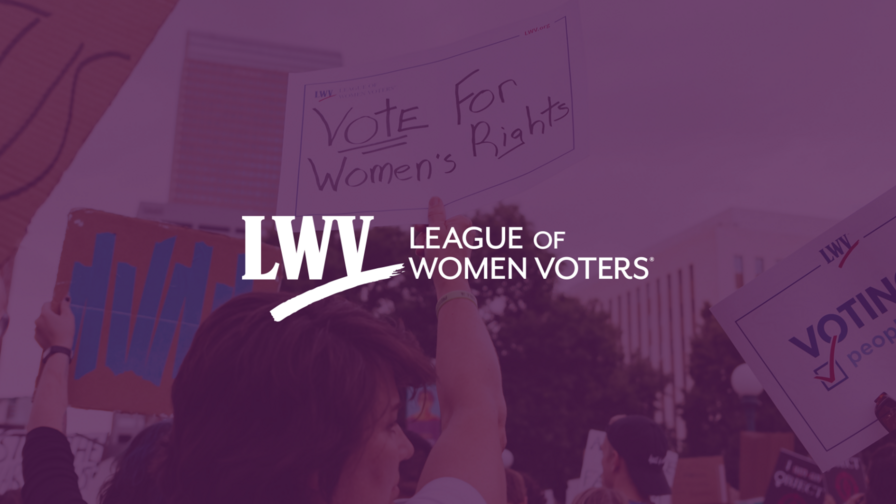Abortion Legislation is a Democracy Issue
In June 2022, the US Supreme Court ruled in Dobbs v. Jackson Women’s Health Organization, overturning Roe v. Wade and Planned Parenthood v. Casey and ending the federal constitutional right to abortion. This ruling increases the authority that legislation has in restricting reproductive choices.
Because the federal government has not passed laws to protect the right to abortion, state and local laws play an enormous role in determining whether constituents have the right and access to reproductive health care.
Without the ability to make reproductive decisions for one’s own body, women and those who can become pregnant cannot participate equally in our democracy. Further, since the Dobbs decision, numerous state governments have introduced legislation directly or indirectly related to reproductive rights, challenging doctrines of US democracy.
Doctrines of Democracy: Voter Participation and Separation of Powers
Democracy is defined as “a government in which the supreme power is vested in the people and exercised by them directly or indirectly through a system of representation.” In the United States, voters can exercise power by casting their ballot for elected officials in federal, state, and local governments. Voters can also have a more direct voice in the laws that govern their lives through ballot measures.

Another doctrine of US democracy is the separation of powers, in which governments are divided into three branches: legislative, executive, and judicial. Generally, the legislative branch makes laws, the executive branch carries out laws, and the judicial branch interprets laws. This structure helps ensure that no individual or singular group holds too much authority.
In the aftermath of Dobbs, several state legislatures have introduced reproductive rights-related bills that undermine these doctrines. Currently, at least eight states have bills that would make it harder for citizens to initiate a ballot measure or that disregard the outcome of a previously decided ballot measure, thereby undermining voter participation. At least three additional states have bills that would shift power typically reserved for the judicial branch to the legislative branch, disrupting the separation of powers
Undermining Voter Participation: Ohio, Missouri, Florida, Mississippi, & Kansas
In 2022, voters in six states decided on reproductive rights-related ballot measures and, in all instances, voted in favor of protecting or expanding reproductive rights.
A state ballot measure is a state constitutional amendment, law, or question that appears on a statewide ballot for voters to decide. Measures are typically introduced and passed by a state’s legislature before going to the ballot. Alternatively, some states have initiated measures in which citizens propose a ballot measure and collect a minimum number of voters’ signatures, at which point it goes to the statewide ballot (direct initiatives) or to the legislature that can put it on the statewide ballot (indirect initiatives). The percentage of voter approval required to pass a ballot measure varies by state.
Support Our Work Fighting Anti-Voter Legislation
In 2022, Michigan voters passed an initiated constitutional amendment saying that the Michigan constitution protects the right to reproductive freedom including abortion. In contrast, in this legislative session, Ohio, Missouri, and Florida legislators have introduced bills that would make it harder to introduce and/or pass an initiated constitutional amendment. Mississippi is considering prohibiting the use of initiated measures for abortion-related laws.
The Ohio House has a resolution to raise the threshold for passing an initiated constitutional amendment from a simple majority (50% plus one) to 60%. Additionally, in order to get an initiated constitutional amendment on the ballot, it would require petition signatures from all 88 counties rather than the currently required 44. This legislation builds on an Ohio resolution from the last legislative session, which the lead sponsor told colleagues was in anticipation of citizens introducing an amendment to protect the right to an abortion.
Similarly, the Missouri House recently passed a resolution to raise the threshold for passing an initiated constitutional amendment from a simple majority to 60%. Missouri state representatives have also introduced two resolutions to increase the percentage and district distribution of voter signatures required to get an initiated constitutional amendment on the ballot. Additionally, the Florida House introduced a resolution to raise the threshold for passing an initiated constitutional amendment from its existing 60% to nearly 67%.

More explicitly, the Mississippi legislature is considering legislation to restore the state’s ballot initiative process, but prohibit it from being used to address abortion. In 2021, the Mississippi Supreme Court ruled that voters could no longer initiate ballot measures. In January 2023, the Mississippi Senate introduced legislation to restore this process to address state statutes, and the House passed the resolution with an amendment that would ban it for the purposes of proposing new laws, or amending or removing existing laws, related to abortion.
Elsewhere, in 2022, Kansas voters rejected a ballot measure that would have amended the state constitution to say that it doesn’t protect the right to, or require government funding for, abortion. Currently, Kansas law allows abortion up until 22 weeks from the last menstrual period.
However, a Kansas state representative is working on a piece of legislation, similar to the 2022 ballot measure, that would amend the constitution to say that it doesn’t protect the right to abortion. The Kansas House and Senate have also introduced bills that would ban abortion at conception and make performing or receiving an abortion a Level 1 person felony, with a minimum of 20 years in prison. Additionally, the Kansas Senate has introduced a bill that would give the state’s cities and counties the ability to enact abortion laws that are stricter than the state law.
Despite the fact that nearly 60%of Kansas voters directly cast their vote against the banning of abortion, the legislature is considering numerous pieces of legislation to remove the right to abortion statewide, or at least restrict the right to abortion in individual cities and counties.
Undermining Separation of Powers: Utah, Montana, & Wyoming
State courts — the judicial branch — interpret their state’s constitution and establish legal precedent for future court cases. Courts can issue an injunction (or “enjoin”), temporarily or permanently blocking a law once passed to avoid current or future harm. Numerous state abortion bans passed since the Dobbs decision have been blocked by state courts. Some of the enjoined laws have since been reinstated, some remain temporarily blocked, and some have been struck down permanently.
To learn about legislation in your community, join one of the 700+ state and local Leagues.
In July 2022, a Utah state court temporarily enjoined the state's near-total abortion ban while the Utah Supreme Court decides its constitutionality. In mid-February, 2023, the Utah House and Senate passed a law that narrows a state court’s power to enjoin a law and requires state courts to reconsider past rulings blocking state laws under these new specifications. If passed, this law could be used to reinstate Utah’s abortion ban, which has been declared unconstitutional, effectively outlawing abortion in the state. This legislative effort represents a trend toward removing state courts’ power to rule on the constitutionality of state laws — a critical piece of our democracy known as the separation of powers.
In 1999, the Montana Supreme Court ruled that the Montana constitution’s right to privacy protects the right to obtain an abortion. In January 2023, the Montana Senate introduced a bill that would overturn this legal precedent by putting into law that the state’s constitution and laws do not protect the right to an abortion. If passed, this law would pave the way for additional abortion restrictions or a total abortion ban in Montana.
In a similar effort to remove the power to determine the constitutionality of laws from state judicial branches, the Wyoming legislature has passed a bill that would ban abortion and find that the state legislature can “make declarations interpreting” the state constitution.
How to Take Action
The League of Women Voters of the United States (LWVUS) believes that public policy must affirm the constitutional right of privacy of the individual to make reproductive choices. LWVUS also believes that every US resident should have access to a basic level of quality health care at an affordable cost, including abortion.
The League works to empower voters and defend democracy. LWVUS will continue to track legislative attacks on reproductive rights and democracy, as well as to serve as a resource for state and local Leagues advocating against harmful, and in support of protective, legislative measures.
To take action at home:
-
Follow the League of Women Voters’ materials and work on reproductive rights;
-
Support reproductive rights organizations and abortion funds across the nation; and
-
Join your local League to learn about and support efforts to protect and expand access to reproductive choices in your area.
The Latest from the League
On Aug. 2, 2022, Kansas will be the first state in the nation to vote on the issue of abortion since the Supreme Court of the United States overturned Roe v. Wade on June 24. The League of Women Voters of Kansas (LWVK) strongly opposes this amendment.
On June 24, 2022, the United States Supreme Court released its decision in Dobbs v. Jackson Women’s Health Organization, overturning the constitutional right to abortion. In so doing, they turned back the clock, looking almost exclusively at reproductive rights from the lens of the mid-1800s and earlier to determine whether the Constitution confers a right to abortion.
WASHINGTON — Today the League of Women Voters of the United States President Dr. Deborah Turner and CEO Virginia Kase Solomón issued the following joint statement in response to the 6 – 3 Supreme Court decision of Dobbs v. Jackson Women’s Health Organization, which overturns the constitutional right to abortion as recognized for nearly 50 years in the landmark cases of Roe v. Wade and Planned Parenthood v. Casey:
Sign Up For Email
Keep up with the League. Receive emails to your inbox!
Donate to support our work
to empower voters and defend democracy.





